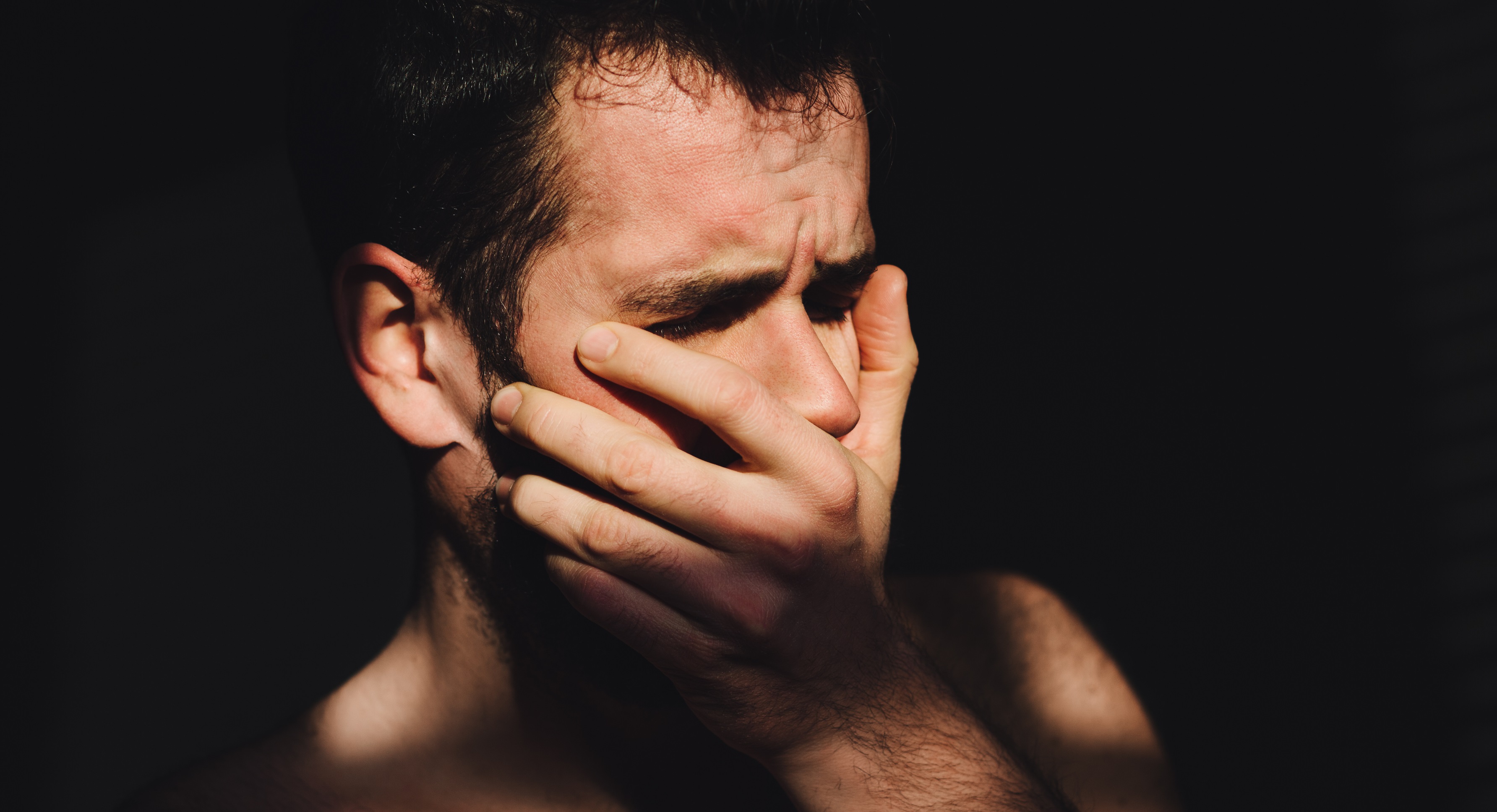Gay shame: How to recognise it and how to shake it off
Psychotherapist Owen O’ Kane offers advice for tackling self-defeating emotion.
By Will Stroude

This article was first published in Attitude issue 332, March 2021.
I believe the human condition is fluid, with regular variations in mood, anxiety levels and a changing mindset.
This is a normal part of who we are and learning how to manage and self-regulate oneself is important. Although our emotions alter, sometimes we can become intolerant of ourselves when we are feeling low.
Beneath this struggle is ‘shame’, which is often an unspoken beast that lurks in the shadows and doesn’t get enough airtime.
Sadly, as a therapist, I come across this demon more frequently with my LGBTQ+ clients than I do with clients from heteronormative backgrounds.
What is shame?
Let me keep it simple. Every time you question your worth, value, or doubt your lovability, shame is working its toxic charm. Your inner world at times might also feel like a place of fear, self-doubt and self-loathing, consequently leading to self-sabotaging behaviours both personally and professionally.
At times you may even ask yourself, ‘If they really knew me, would they still love me?’
My experience of shame
I can boast that I come with triple-threat qualifications on shame, being Irish, Catholic and gay. This combination, topped off by growing up during the sectarian riots in Belfast, set me up to question my identity and value.
In short, when you are brought up in a culture of fear that tells you that the essence of who you are is sinful, wrong, dirty or bad, then the mind of a child or young teenager takes that to be the truth.

Owen O’Kane is a psychotherapist, former NHS Mental Health Clinical Lead, and Sunday Times best-selling author.
Shame then sets in and psychological processes move up a gear from guilt to shame. Guilt is when we feel ‘bad’ about something, whereas shame raises the question: ‘Am I actually bad, worthless, powerless, or unlovable?’
If shame is never exposed and challenged, it sticks, but the good news is, it can’t survive when it’s brought into the light. I was lucky to learn that in my early twenties from my first therapist (ironically, a Catholic nun), who reminded me that the people who shame you are normally frightened of difference. I had to let go of that shame and not carry other people’s fear around with me.
Your story
Each person reading this will have their own variation and story of being shamed at some level. It may have been at school, home, church, work, or even by those who love you.
It is highly unusual for LGBTQ+ individuals to experience absolute acceptance, non-judgement and love for who they are before entering adulthood. I have NEVER had a straight client tell me that their parents were disappointed when they realised they had a straight child!
So, I suggest that if you are struggling at times in your adult life, always explore the role of shame. I’d wager it’s playing a stronger part than you realise. If shame is tripping you up, the good news is you can do something about it.
Managing shame
Many of us have been taught to silence our shame, keep it a secret, or to find a way to numb it. My approach is the opposite: Never ignore your shame — attend to it, as it’s relying on you to make things better.
Never keep it a secret. You and your life are for celebrating, and in the words of the song, what I am needs no excuses. Seek help and talk to someone. It will reduce or extinguish your feelings of shame, and hopefully show you that shame simply doesn’t belong with you.
Don’t numb the feeling with booze, drugs or substances. Shame will keep coming back until you address the underlying issues.
So, the next time you find yourself wondering, ‘If you really knew me would you still love me?’, remember that who you are is not shameful. YOU deserve to love and be loved.
Owen O’Kane is a psychotherapist, former NHS Mental Health Clinical Lead, and Sunday Times best-selling author. His book, Ten Times Happier, is out now.
